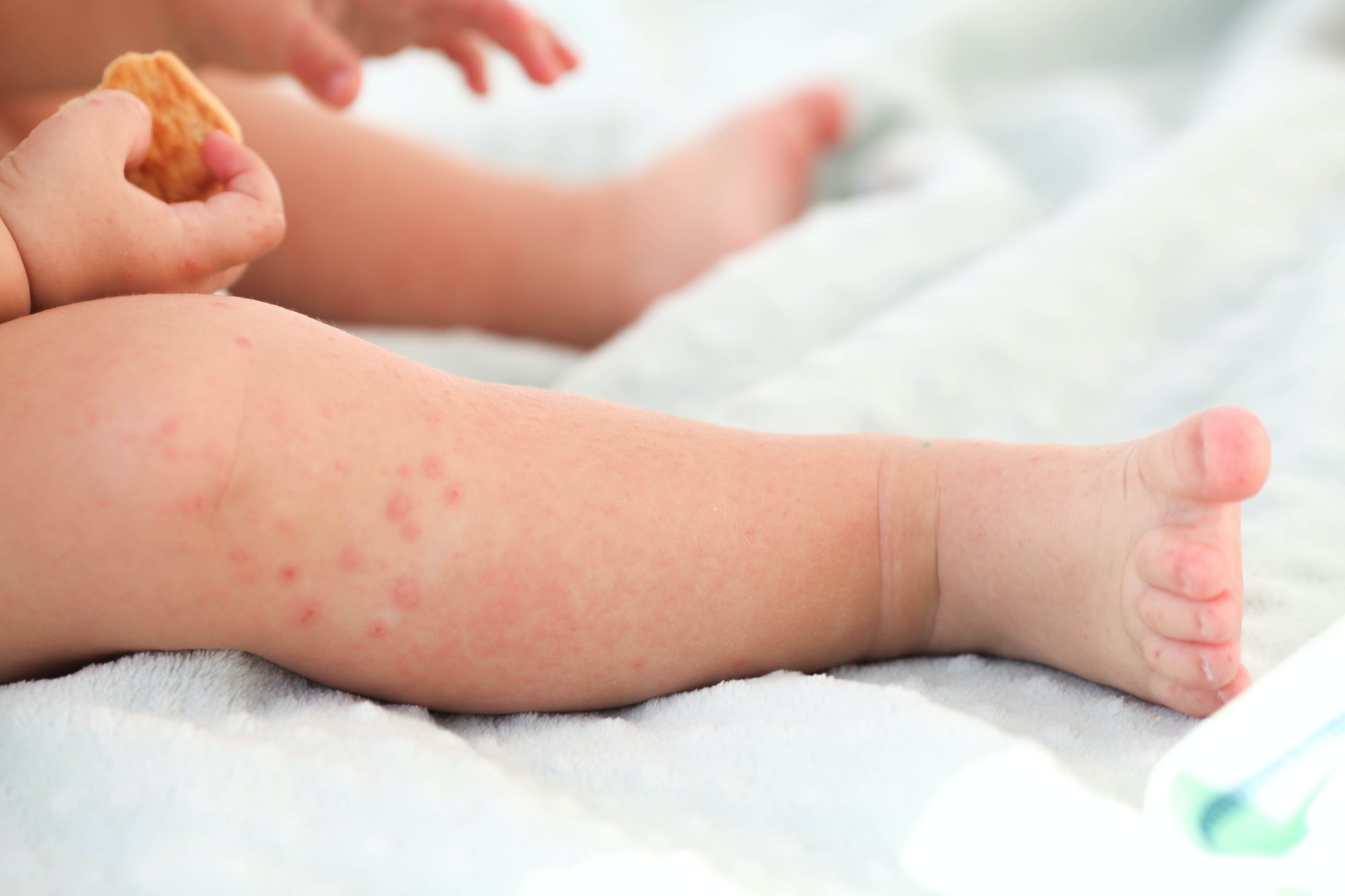Chickenpox is a highly contagious viral infection that causes an itchy rash and red spots or blisters all over the body. It is caused by the varicella-zoster virus and spreads easily through coughing or sneezing. Chickenpox is common among children, but it can also affect adults who have not had it before. There are many home remedies that can help relieve the symptoms of chickenpox. These remedies are often used to soothe the skin, reduce itching, and promote healing. Some of the most effective home remedies include calamine lotion, baking soda baths, and oatmeal baths.
Calamine lotion is a popular remedy for chickenpox because it helps to relieve itching and soothe the skin. Baking soda baths and oatmeal baths are also effective in reducing itching and promoting healing. These remedies work by creating a protective barrier on the skin that helps to reduce inflammation and irritation. In addition to these remedies, there are several other home remedies that can help relieve the symptoms of chickenpox.
What is Chicken Pox?
Chickenpox is a highly contagious viral infection that causes an itchy, blister-like rash all over the body. It is caused by the varicella-zoster virus and is most common in children under the age of 12, but anyone can get it. The virus spreads through direct contact with the rash, saliva, or mucus of an infected person.
The symptoms of chickenpox usually appear about 10 to 21 days after exposure to the virus. The first symptoms may include a fever, headache, and loss of appetite. A few days later, a rash appears, which usually starts on the face, chest, and back and then spreads to the rest of the body. The rash turns into fluid-filled blisters that eventually scab over and heal. The rash usually lasts for about a week to 10 days.
Chickenpox is usually a mild illness, but it can be more severe in people with weakened immune systems, pregnant women, and newborns. Complications of chickenpox can include bacterial infections of the skin, pneumonia, and encephalitis. It is important to seek medical attention if you or your child has chickenpox and experiences any severe symptoms or complications.
Symptoms of Chicken Pox
Chickenpox is a highly contagious viral infection that typically affects children. It is caused by the varicella-zoster virus and is characterized by a rash of itchy, fluid-filled blisters that appear on the skin. In this section, we will discuss the common symptoms of chickenpox and its potential complications.
Common Symptoms
The symptoms of chickenpox usually appear within 10-21 days after exposure to the virus. The first symptoms of chickenpox include:
- Fever
- Headache
- Loss of appetite
- Fatigue
After a few days, a rash of red, itchy bumps will appear on the skin. These bumps will eventually turn into fluid-filled blisters that will break open and scab over. The rash usually starts on the face, chest, and back, and then spreads to the rest of the body.
Other common symptoms of chickenpox include:
- Sore throat
- Cough
- Stomach ache
- Headache
Complications
While chickenpox is usually a mild illness, it can sometimes lead to complications, especially in adults, pregnant women, newborns, and people with weakened immune systems. Some of the potential complications of chickenpox include:
- Bacterial infections of the skin, lungs, or bloodstream
- Pneumonia
- Encephalitis (inflammation of the brain)
- Reye’s syndrome (a rare but serious condition that can cause brain and liver damage)
If you or your child develops any of these symptoms, it is important to seek medical attention right away.
Treatment Options
While chickenpox is typically a mild illness that resolves on its own within a few weeks, there are several treatment options available to help alleviate symptoms and speed up the healing process. Medical treatments and home remedies can both be effective in managing chickenpox.
Medical Treatments
In some cases, medical treatments may be necessary to manage chickenpox symptoms. Antiviral medications, such as acyclovir, may be prescribed to help reduce the severity and duration of the illness. Additionally, over-the-counter pain relievers like acetaminophen (paracetamol) can help alleviate fever and discomfort.
You should not give your child ibuprofen for chickenpox – as it can cause serious skin reactions.
Other over-the-counter remedies
- Calamine lotion: Calamine lotion can help relieve the itching and irritation caused by chickenpox. Apply a thin layer of calamine lotion to your toddler’s skin as needed.
- Antihistamines: Antihistamines can help reduce itching and inflammation caused by chickenpox. Consult your pediatrician before giving your toddler any over-the-counter antihistamines.
However, it is important to consult with a doctor before giving any medication to a child with chickenpox.
Home Remedies
Many people turn to home remedies to help manage chickenpox symptoms. One popular remedy is the use of oatmeal baths, which can help soothe itchy skin. Calamine lotion is another common remedy that can help reduce itchiness and discomfort. Additionally, staying hydrated is important during the illness, and drinking plenty of fluids can help prevent dehydration. Other remedies include:
- Applying baking soda paste to itchy areas
- Using a cool, wet compress on affected skin
- Wearing loose, comfortable clothing
- Keeping fingernails short to prevent scratching and infection
While home remedies can be effective in managing chickenpox symptoms, it is important to consult with a doctor before using any new treatment. Additionally, it is important to remember that chickenpox is highly contagious, and individuals with the illness should avoid contact with others until all blisters have crusted over.
Chicken Pox Home Remedies
Chicken Pox is a contagious virus that causes itchy and painful rashes all over the body. While there is no cure for chicken pox, there are several home remedies that can help relieve the symptoms and speed up the healing process. Here are some effective chicken pox home remedies:
Oatmeal Baths
Oatmeal baths can help soothe the skin and reduce itching caused by chicken pox. To prepare an oatmeal bath, grind 1 cup of oatmeal in a blender or food processor until it becomes a fine powder. Add the oatmeal powder to a bathtub filled with lukewarm water and stir well. Soak in the bath for 15-20 minutes, then pat the skin dry with a soft towel. Repeat this remedy several times a day for best results.
Baking Soda
Baking soda has anti-inflammatory properties that can help reduce itching and irritation caused by chicken pox. To use baking soda, add 1-2 cups of baking soda to a bathtub filled with lukewarm water and stir well. Soak in the bath for 15-20 minutes, then pat the skin dry with a soft towel. Repeat this remedy several times a day for best results.
Honey
Honey has antibacterial and anti-inflammatory properties that can help reduce itching and speed up the healing process of chicken pox. To use honey, apply a thin layer of raw honey directly on the affected areas of the skin. Leave it on for 15-20 minutes, then rinse off with lukewarm water. Repeat this remedy several times a day for best results.
Neem Leaves

Neem leaves have antiviral and anti-inflammatory properties that can help reduce itching and inflammation caused by chicken pox. To use neem leaves, boil a handful of neem leaves in water for 10-15 minutes. Strain the liquid and let it cool down. Dip a clean cloth in the neem water and apply it on the affected areas of the skin. Repeat this remedy several times a day for best results.
Essential Oils
Essential oils like lavender, tea tree, and chamomile have antiviral and anti-inflammatory properties that can help reduce itching and inflammation caused by chicken pox. To use essential oils, add a few drops of your favorite essential oil to a carrier oil like coconut or olive oil. Apply the oil mixture on the affected areas of the skin and massage gently. Repeat this remedy several times a day for best results.
Herbal Teas
Herbal teas like chamomile, green tea, and peppermint tea have anti-inflammatory and soothing properties that can help relieve the symptoms of chicken pox. To use herbal teas, brew a cup of tea and let it cool down. Dip a clean cloth in the tea and apply it on the affected areas of the skin. Repeat this remedy several times a day for best results.
Chicken Pox Dietary remedies
Vitamin C

Vitamin C can help boost your toddler’s immune system and speed up the healing process. Incorporate vitamin C-rich foods into your toddler’s diet, such as oranges, strawberries, and kiwis.
Hydration
Encourage your toddler to drink plenty of fluids to prevent dehydration, which can be a complication of chickenpox.
Hydration is important for chickenpox because it helps to prevent dehydration, which is a common complication of this illness, particularly in young children. When someone has chickenpox, they may experience symptoms such as fever, sweating, and loss of appetite, which can all contribute to dehydration. Additionally, if a child has blisters from chickenpox, they may be hesitant to drink fluids because it can be painful to swallow. However, it’s important to ensure that they are drinking enough fluids to avoid dehydration.
Hydration also helps to support the immune system, which is important for fighting off the chickenpox virus. When the body is dehydrated, it can become more susceptible to infections and illnesses, including secondary infections that can develop as a result of chickenpox. Therefore, staying well-hydrated can help to support the immune system and promote healing.
Healthy foods
Provide your toddler with a healthy, balanced diet to support their immune system and aid in the healing process. Immune boosting foods include garlic, ginger, turmeric, yogurt and cirtus among so many others.


